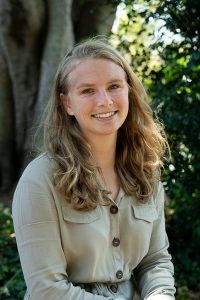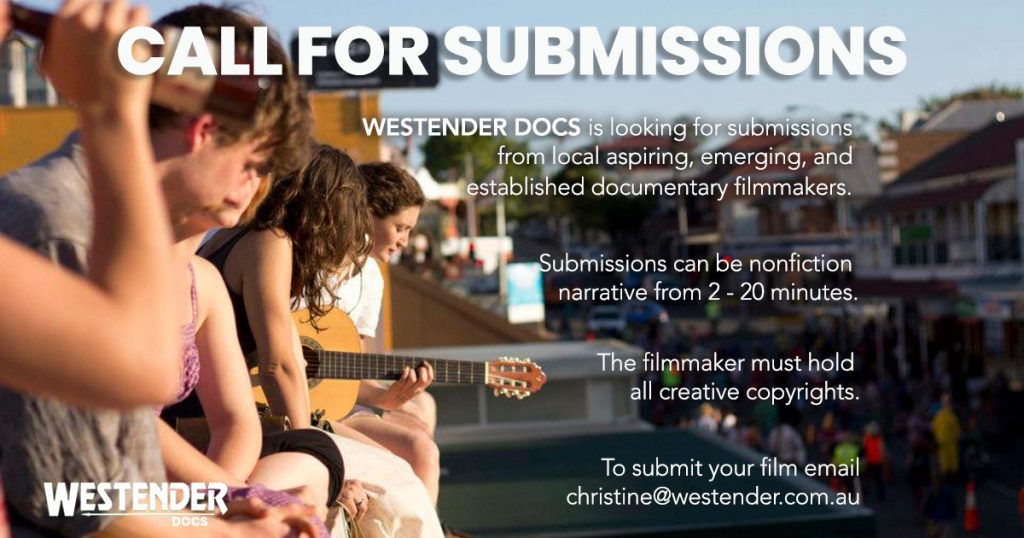In early 2020, protests erupted around a Kangaroo Point hotel turned-detention centre with around 120 refugees and asylum seekers locked inside by the Australian government. “Let Them Hug” is a short film by Jemma that follows a Somalian family fighting to be reunited after 7 years in immigration detention.
About the filmmaker
Jemma is an emerging filmmaker based in West End. Interested in using film as a tool for education and social change she pursued a graduate diploma in film at Griffith University in 2019. She is currently developing her short film into a longer feature film, “Let Them Hug”.
What drew you to the protests and eventually led you to document Saif’s story?
I had been researching making a documentary about refugees when I was at film school. I’d volunteered in some refugee camps in Eastern Europe and seen how hectic it was there. My classmates suggested I look at the refugee policy in Australia. I didn’t really know that much about it and it just didn’t seem accessible. And then lockdown happened, and I saw on Facebook the exercise protests happening around Kangaroo Point for the refugees detained in the hotel there. It was only two kilometres from my house. So I started going and I got to know everyone there. It was super intense to find out. I did want to make a documentary on it, but I didn’t know how big it was going to be.
One of the guys inside Kangaroo Point, Saif, had his wife and child living just a few kilometres away in the community. So I offered his wife a lift to the first protest, but I didn’t intend to film her. Then when Saif made a speech at the rally, and he said, “My wife and son are right there, they’re right there. “ABF*. Serco*. Can I hug my son?”. And almost 2,000 people spontaneously started chanting, “Let him hug his son” And I asked, “Can I film?” And she said, “Yeah.” And so I filmed the whole thing. I made an edit in less than a day. Refugee Solidarity Meanjin posted it a day later and it just went off. It got 50,000 views and that was the start of everything. When I talked to the family they were really keen to share their story because they were looking for any avenue to advocate for themselves. Saif didn’t want to criticise the government or anything like that. All he wanted was to be with his family, and that’s the only message that he wanted to be put across.
*ABF (Australian Border Force) *Serco (the private security firm contracted for Australia’s detention centres)
Australia’s policy that causes indefinite detention is now in its ninth year. Why is it important to continue to tell this story?
I think there are a lot of people who could and should care about certain issues that deserve attention – such as how refugees are treated in Australia, but they are a bit disengaged from it at the moment. I think film can engage people with issues in a way that other mediums can’t. It’s just another way to connect with people and get them to connect to issues that they should care about.
That first video got over 50,000 views, and it that was like, wow, people actually do care about this. This is a story that is really special and it speaks to people. Every time we posted about the family, people are really moved by it. People cry every time they see that first clip. Obviously, we don’t want people to be crying all the time, we want people to see the refugees as people exactly like them, and seeing a family with a young child has that effect.
Many of the people involved in your film are also part of the West End community, and you yourself live in the area. How would you describe this community and its influence on you?
I love West End. As everything gets more developed, it’s communities like this that get lost, and even West End is at risk of that. I don’t want to leave here, because people know each other more than in the big developed areas. People are really creative. It’s a suburb that’s not like anywhere that I’ve ever lived, and I really enjoy living here. A lot of the people at the Kangaroo Point protests are West End people. People who are engaged in their community. People seeking an alternative to what the norm is of living at the moment in cities. It doesn’t have to be this capitalist-driven rat-race. They’re looking for more sustainable ways, more community-centred ways, more compassionate ways of living.
—-
Early 2021, a number of men were released from the Kangaroo Point hotel and moved into community detention and Saif’s family were finally resettled in the US. The fight still continues, with a number of men still being processed by the Australian government in Australia, Papua New Guinea, or Nauru.
For more information about the community rallying around the refugees, follow Refugee Solidarity Meanjin and Refugee Action Collective. If you are interested in donating to Saif’s fundraiser as they start their new life in the US, or to the most recently released group of refugees into community detention in Brisbane.
For updates on Let Them Hug check the film out on Facebook and Instagram
Are you a local documentary filmmaker? Interested in being featured?
Contact christine@westender.com.au to submit.




